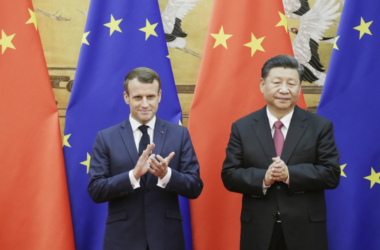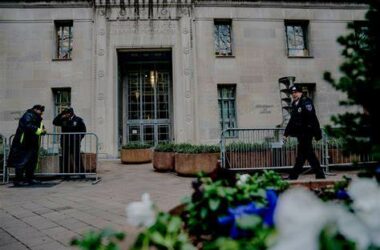In a tense and polarizing diplomatic episode, Israel has called for the resignation of United Nations Secretary-General António Guterres over his comments regarding a recent Hamas attack on Israeli soil. The controversy stems from Guterres’ statement condemning the attack while emphasizing the broader context in which it occurred. Israeli officials, including the foreign minister, have vehemently criticized the UN chief’s remarks, leading to a heated exchange in the UN Security Council.
Two weeks ago, an attack by Hamas took place in Israel, drawing international condemnation. Secretary-General António Guterres, addressing the UN Security Council, unequivocally condemned the attack. However, he emphasized the importance of recognizing that such incidents “did not happen in a vacuum.”
Israeli Foreign Minister Mr. Cohen responded with strong words in his own speech to the Security Council, asking Secretary-General Guterres, “In what world do you live?” Cohen characterized the killing of 1,400 men, women, and children by the 1,500 Hamas gunmen who infiltrated Israel as a massacre that, in his words, would “go down in history as more brutal” than those committed by the Islamic State (IS) group. He went on to assert that “Hamas are the new Nazis,” calling for a united front by the civilized world to defeat the organization, akin to the efforts against the Nazis and ISIS.
Cohen also questioned the UN’s appeals for proportionality and a ceasefire, asking, “How can you agree to a ceasefire with someone who swore to kill and destroy your own existence?” Israel’s Ambassador to the UN, Gilad Erdan, accused Guterres of “justifying terrorism” and demanded his immediate resignation. Additionally, Erdan announced Israel’s decision to withhold visas from UN officials.
Secretary-General Guterres, addressing the UN Security Council in New York, reiterated his condemnation of the recent acts of terror by Hamas in Israel. He made it clear that nothing could justify the deliberate killing, injuring, and kidnapping of civilians or the launching of rockets against civilian targets.
However, Guterres emphasized that the attacks by Hamas did not occur in isolation. He pointed out that the Palestinian people have endured 56 years of suffocating occupation, where their land has been gradually consumed by settlements, and they have suffered from violence, economic stifling, displacement, and home demolitions.
The UN chief also expressed deep concern about “the clear violations of international humanitarian law” observed in Gaza. He highlighted Israel’s continuous bombardment of Gaza, the alarming number of civilian casualties, and the wholesale destruction of neighborhoods. Although he did not explicitly mention Hamas or Israel, he stressed the importance of protecting civilians without using them as human shields and without creating conditions that put them at risk.
Guterres called for a humanitarian ceasefire to ease the delivery of aid to Gaza and facilitate the release of hostages. He mentioned the limited aid deliveries and warned of a potential disaster due to the lack of fuel. The UN agency for Palestinian refugees, Unrwa, indicated that without fuel deliveries, they would be unable to support the 600,000 people sheltering in its facilities. Hospitals would lose power, and the purification and pumping of drinking water would be severely impacted.
The foreign minister of the West Bank-based Palestinian Authority, Riyad al-Maliki, also weighed in on the situation, demanding an end to what he called “ongoing massacres being deliberately, systematically, and savagely perpetrated by Israel” against the two million people living in Gaza.
The demand for UN Secretary-General António Guterres’ resignation by Israel over his comments on the Hamas attack underscores the deep-seated tensions and complexities of the Israel-Palestine conflict. The situation highlights the challenges of addressing this long-standing conflict within international forums and the wide range of opinions and positions held by various stakeholders. As the world watches these developments, the hope for a peaceful resolution to this protracted dispute remains elusive.








